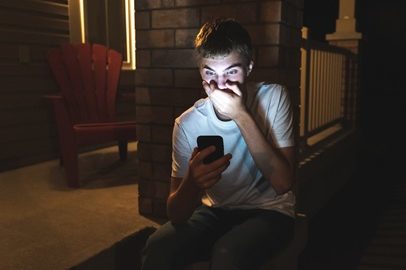Privacy Concerns with Children Christmas Gifts

Thousands of Filipino teenagers and kids will be receiving for Christmas a smartphone, a tablet, a computer or other electronic devices that can connect to the internet. Technology is the coolest gift for children right now, but is it definitely a good idea for parents, teachers and adults in charge to be able to guide them in how to maintain safety practices and protect their privacy. Philippines investigators have been alerting adults for a long time about how privacy issues can affect their well-being, but it is extremely important this time of the year to teach children about proper use of the internet.
It´s not only about the content they will be exposed to
Too many parents worry that their children will be exposed to adult content, but do not care that much about what they share. According to a study in South Asia, most of the parents’ concerns with their children having a smartphone have nothing to do with their privacy. The concerns should not focus only on consumption, but also on how children contribute with their own content. What kind of things are they sharing? Does that include photos, personal information, their location, their address?
Banning social media use is not going to work
Trying to prohibit a child born in the internet era to use social media tools is probably not the best idea. Children manage the internet better than we do, at least in terms of the technology itself. They will find a way around and end up putting themselves more at risk because they will have profiles that we do not even know exist. As adults, sometimes we are not well informed about how to use social media properly ourselves and end being victim. Online scam is a big problem in the Philippines, so getting informed about safe ways to use the internet and being a model are the first steps into teaching our own children how to protect themselves. Children must be aware of the threats.
Setting parental controls in the device is not enough
Sometimes parents rely on the device´s parental controls assuming that the right privacy settings will keep them safe. However, the greater risks online come from the information they naively share with their “online friends”. Take for example the chats of some of games online. Children may think they are just playing with other kids like them, and so they chat with others and tell them their address, or casually comment they are home alone. Criminals use gaming platforms to communicate without being noticed and also to find victims, and unfortunately children are a big target.
What to do to stay safe then?
Most children who will be receiving a smartphone for the first time are old enough to understand the risks. Parents need to get involved in what their children do with their mobile devices, not just download a privacy app. Criminals target anyone connected, not just adults.
Expert investigators in the Philippines recommend explaining your children that sharing too much information can be very dangerous. Sharing their location can be one of the greatest risks, so teach them how to turn off their GPS. Go over the privacy settings in the social media profiles with them, and let them know what content is good to share and what not.
It is extremely important to let them know that the digital world works just as the real world does, and that accepting strangers in their Facebook accounts is just like talking to strangers on the street. Make sure your child understands they should never accept a friend request from someone they don’t know in real life. Make sure they talk to you about any new online contacts.
Parental controls in the device will help, but not be enough, with children at primary school stage. Parents should be the ones who approve the apps that are being installed in the device. After all, many of the apps have access to important controls in the device, like the camera or the GPS.
Protecting children is a main concern for investigators in the Philippines, and it should be a main concern to all parents as well. If you need to verify someone you or your family member met online, contact us today for a free and confidential quote. We can help.
C. Wright
© 2015 Philippine PI
![]()
© Copyright 2015 Philippine PI. All Rights Reserved. This content is the property of Philippine PI, LLC and is protected by United States of America and international copyright laws.













